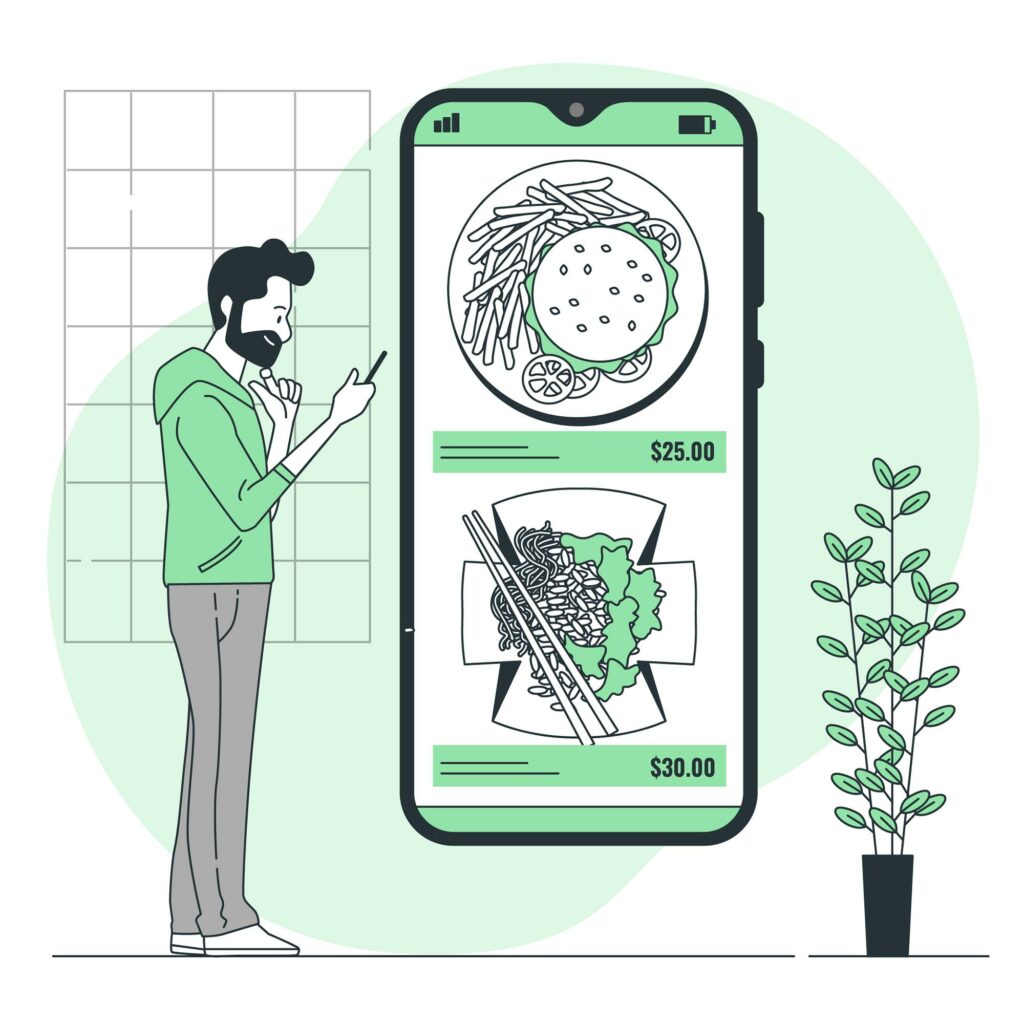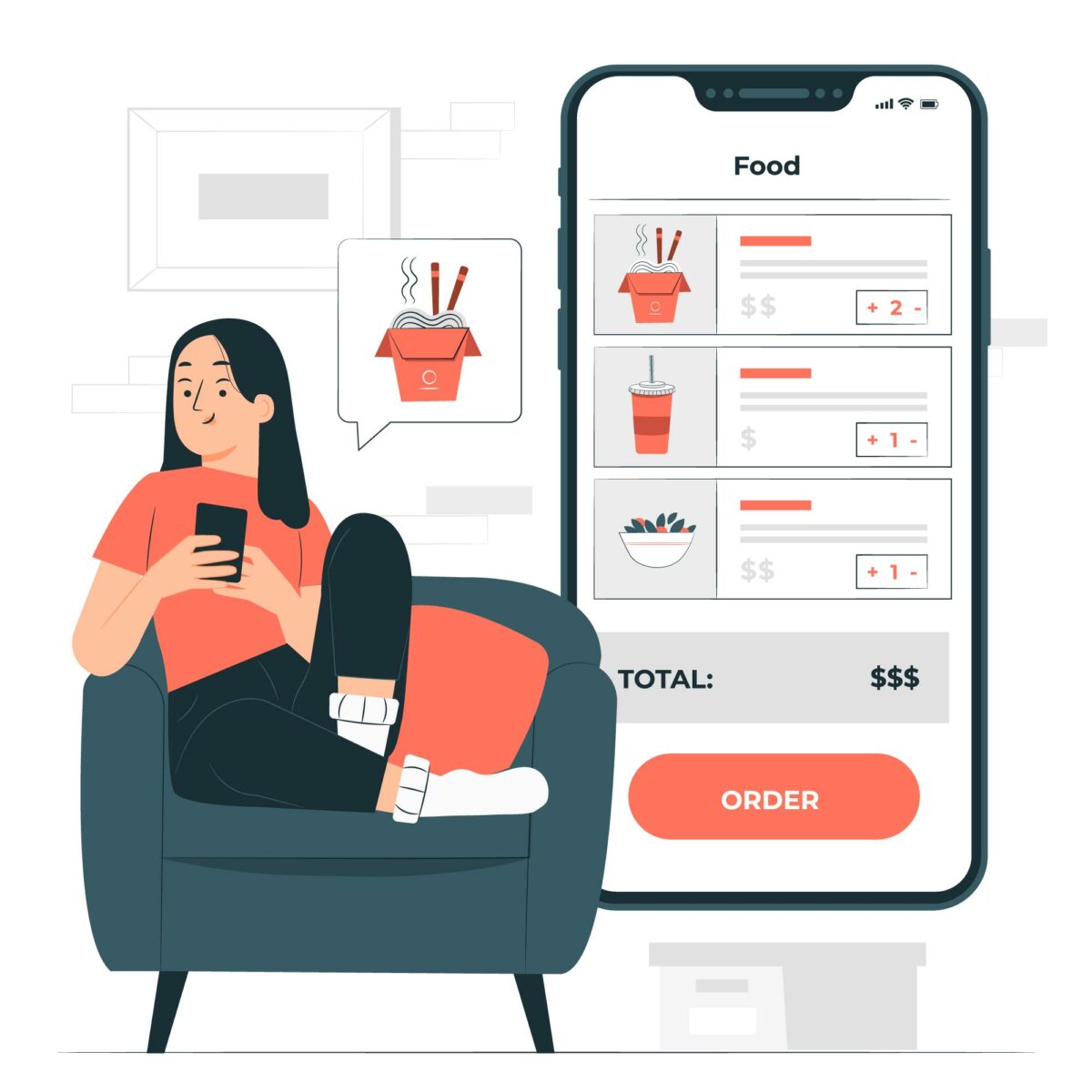The food industry has recently seen a spike in demand for both transparency and traceability in their supply chain. Consumers are increasingly aware of the source and quality level of the goods they purchase, leading to regulatory bodies furthering their involvement to safeguard food safety laws. This heightened focus has created an urge to use blockchain app development services technology to modernise traceability throughout the food sector.
Blockchain application advancement offers an exciting chance to attend to these difficulties and develop enhanced security, efficiency, and visibility across the whole food production procedure. Ultimately, employing blockchain strategies could significantly increase consumer confidence in the supply chain by removing common doubts about supply chain contents.
The Need for Traceability
Food borne illnesses, product recalls, and fraudulent labelling have been plaguing the food industry. Consumers trust in the safety and authenticity of products they purchase has been markedly reduced as a result. Traditional supply chains are often complex which makes tracing the source of these issues a tough task. This lack of transparency can be costly for public health, brand reputation, and consumer engagement alike.
Traceability provides visibility into each product’s origin, processing, packaging, and distribution– allowing better control over contamination risks. The perfect tool to improve this type of traceability is blockchain technology with its decentralised and immutable nature providing a secure framework to enable better tracking. Overall, traceability entailed by blockchain technology brings transparency to ensure dignified consumer trust and guarantee safety for public health purposes in the food industry systems.

How Blockchain Enhances Traceability
Blockchain, often referred to as a “digital ledger,” is an exciting technology that dramatically improves record keeping. By operating on a distributed system, it’s far more secure and reliable: instead of one central database to attack or alter, the blockchain platform ensures data security through independent nodes, each dedicated node maintaining its own records directly affecting the digital chain.
Here’s how blockchain technology enhances traceability in the food industry:
Immutable Records:
Data added onto the blockchain is immovable; once written, it cannot be executed, erased, or altered. This permanent record serves as a safeguard – shielding transactions from potential interference of fraud or unreasonable tampering due to its inviolable nature.
Secure Data Sharing:
Stakeholders across the supply chain, including farmers, producers, distributors, retailers, and consumers, can securely share and access relevant information without compromising sensitive data. Permissioned blockchains ensure that only authorised participants can view and update data.
Faster Recall Management:
In the event of a product recall, blockchain allows for quick and precise identification of affected batches. This reduces the scope of recalls, minimising waste and potential harm to consumers.
Smart Contracts:
Blockchain is a powerful asset that enables companies to harness the potential of smart contracts. These agreements are self-executing and contain strict rules that are predetermined ahead of time. Modifying specific processes within the supply chain becomes easier with Blockchain—compliance with regulations can be monitored, payments can be delivered automatically, and quality control can be maintained effortlessly.
Read Also: What is the Role of Smart Contracts in the Blockchain Ecosystem?
Blockchain App Development for Traceability
Developing a blockchain app development for traceability in the food industry involves several key steps:
Choosing the Right Blockchain Platform:
Select a suitable blockchain platform based on factors such as scalability, security, and consensus mechanisms. Ethereum, Hyperledger Fabric, and Corda are popular choices for enterprise-level blockchain solutions.
Data Collection and Integration:
Gather relevant data at each stage of the supply chain, including product details, location information, certifications, and quality control metrics. Integrate data sources, such as IoT devices and sensors, to automate data collection.
Smart Contract Development:
Create smart contracts to automate processes and ensure compliance with predefined rules. For example, a smart contract could trigger a payment to a farmer once quality standards are met.
User Interface Design:
Develop an intuitive user interface for the blockchain app. This interface should allow stakeholders to input and access data easily, enhancing user adoption.
QR Code Integration:
Implement QR codes on product packaging to link physical products with their digital records on the blockchain. Consumers can scan the QR codes to access detailed information about the product’s journey.
Testing and Security Audits:
Thoroughly test the blockchain app for functionality, security, and performance. Conduct security audits to identify and address vulnerabilities.
Deployment and Training:
Deploy the blockchain app to the intended users and provide training to ensure seamless adoption. Offer technical support to address any issues that may arise.

Benefits and Challenges
Blockchain app development for traceability in the food industry offers a range of benefits, including:
Enhanced Consumer Trust:
Transparent supply chain information instil confidence in consumers, leading to increased trust in food products and brands.
Improved Food Safety:
Rapid traceability enables quick identification and isolation of contaminated products, reducing the risk of foodborne illnesses.
Efficiency and Cost Savings:
Automation of processes through smart contracts streamlines operations, reduces paperwork, and minimises the need for intermediaries.
Compliance and Regulatory Reporting:
Blockchain simplifies compliance with regulations by providing accurate and auditable records of each transaction.
Despite its potential, blockchain app development for traceability also presents challenges:
Integration Complexity:
Integrating existing systems, databases, and devices with a blockchain network can be complex and requires careful planning.
Data Accuracy:
The accuracy and reliability of data entered the blockchain are crucial. Ensuring that data inputs are trustworthy is a critical consideration.
Scalability:
As the number of transactions on the blockchain increases, scalability becomes a concern. Blockchain networks must be designed to handle high transaction volumes.
Interoperability:
Ensuring interoperability between different blockchain networks and legacy systems can be challenging.
Conclusion
Blockchain app development is a game changer for traceability in the food industry. Issues of food safety, transparency, and authenticity can all be addressed through the technology’s decentralised, immutable feature set. This allows every stakeholder involved in the supply chain to share data securely and with greater efficiency.
Harnessing blockchain solutions means increased consumer trust, better food safety workflows and streamlined operations within the industry. Despite a few challenges presented by implementing such a powerful technology like blockchain, its advantages won’t go unnoticed.
Traceability will be more process driven, making it an appealing solution to integrate into modern day commerce of food items. As technology continues to advance, development and adoption of blockchain app development company based track and trace systems are among those sure to have lasting effect on our food production and supply chains.
QSS Technosoft Inc, Your Reliable Partner for Blockchain App Development Services in the Food Industry!
QSS Technosoft Inc. is a leader in blockchain development company USA, with unparalleled experience designing traceability systems that have security built into the core. We understand the complexities of getting all parties to agree on a secure traceability scheme that has complete visibility and transparency. That’s why our specialist team focuses on creating one single platform capable of connecting already existing company systems and tools together as a solution that’s reliable yet simple to navigate and use. It is through this holistic approach to traceability systems that makes us unique and successful in helping companies deploy integration packages with maximum efficiency.


Blockchain App Development Services for Traceability in the Food Industry